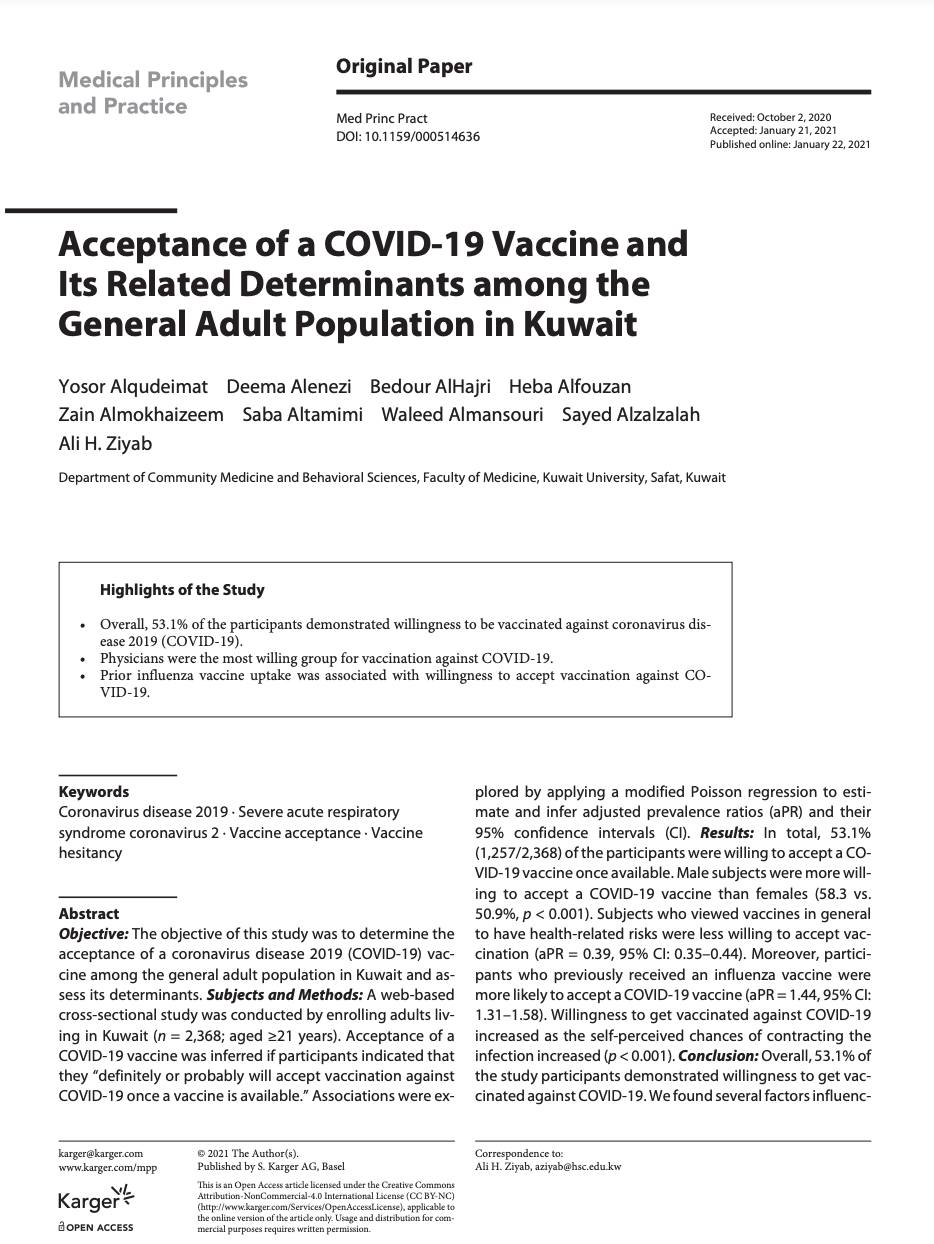Acceptance of a COVID-19 Vaccine and Its Related Determinants among the General Adult Population in Kuwait
Description
The objective of this study was to determine the acceptance of a coronavirus disease 2019 (COVID-19) vaccine among the general adult population in Kuwait and assess its determinants.
Subjects and Methods: A web-based cross-sectional study was conducted by enrolling adults living in Kuwait (n = 2,368; aged ≥21 years). Acceptance of a COVID-19 vaccine was inferred if participants indicated that they “definitely or probably will accept vaccination against COVID-19 once a vaccine is available.” Associations were explored by applying a modified Poisson regression to estimate and infer adjusted prevalence ratios (aPR) and their 95% confidence intervals (CI).
Results: In total, 53.1% (1,257/2,368) of the participants were willing to accept a COVID-19 vaccine once available. Male subjects were more willing to accept a COVID-19 vaccine than females (58.3 vs. 50.9%, p < 0.001). Subjects who viewed vaccines in general to have health-related risks were less willing to accept vaccination (aPR = 0.39, 95% CI: 0.35–0.44). Moreover, participants who previously received an influenza vaccine were more likely to accept a COVID-19 vaccine (aPR = 1.44, 95% CI: 1.31–1.58). Willingness to get vaccinated against COVID-19 increased as the self-perceived chances of contracting the infection increased (p < 0.001).
Conclusion: Overall, 53.1% of the study participants demonstrated willingness to get vaccinated against COVID-19. We found several factors influencing the level of acceptance. Since vaccination appears to be an essential preventive measure that can halt the COVID-19 pandemic, factors relating to low vaccine acceptance need to be urgently addressed by public health strategies.
Additional languages

DETAILS
Publication
Authors
Emergency
Scope
Language
Region
Keywords

